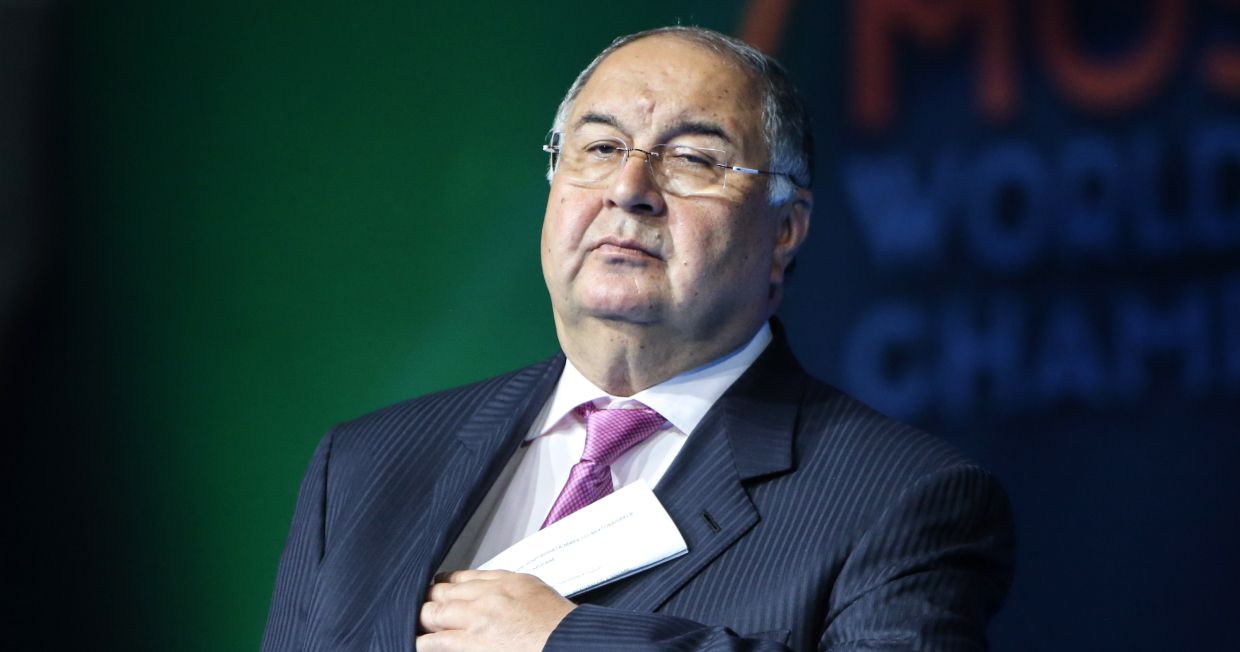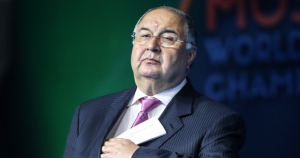
Russia takes direct control of top social media networks

Billionaire Alisher Usmanov announced Thursday the sale of his stake in internet holding company VK, which controls two major Russian social networks: Vkontakte and Odnoklassniki. The stake will pass to state-owned bank Gazprombank and insurance company Sogaz, which is controlled by Putin ally Yuri Kovalchuk and his family. The new head of VK looks set to be the son of top Kremlin official Sergei Kiriyenko.
- After the completion of the sale (no price was given), Sogaz and Gazprombank will each obtain 45 percent of MF Technologies, which owns 57.3 percent of the voting shares in VK. State defense corporation Rostec holds the remaining 10 percent of MF Technologies.
- While it’s clear that the deal gives the state much closer control over social networks Vkontakte — which has about 100 million users and is often touted as the Russian answer to Facebook — and Odnoklassniki, it’s less clear what plans the new owners have for VK. One commentator speculated Saturday that VK could be used as a platform to create a Russian equivalent of YouTube and squeeze out the Western video service. “From the audience figures for different platforms it was clear how foreign platforms were gaining popularity and how Vkontakte was losing ground,” said one source close to the negotiations about the sale. “For political reasons, the state did not want Vkontakte to lose touch with a Russian audience.”
- Sogaz and Gazprombank are closely connected to one another: both through state-owned gas giant Gazprom (that helped to set-up both Sogaz and Gazprombank), and via Kovalchuk. The largest shareholder in Sogaz (with 34.8 percent of voting shares) is Aquila LLC, which is owned by Kovalchuk, his wife and former senior managers at Kovalchuk-controlled Rossiya Bank. Gazprom holds a further 22.9 percent of Sogaz, while 13.4 percent belongs to Mikhail Shelomov, the son of Russian President Vladimir Putin’s cousin.
- The situation is similar at Gazprombank. While 49.9 percent of Gazprombank is held by Gazprom, the company’s second largest shareholder (with 40.9 percent) is Gazfond. The biggest shareholder in Gazfond is Gazprom (which controls 41.2 percent) — but 33.3 percent of Gazfond’s shares are held by Sogaz.
- But this does not mean that Gazprombank and Sogaz are not separate entities, with different agendas. Both Gazprombank and Kovalchuk are apparently seeking to build their own media empires, which are in competition with one another. Gazprom Media — 77.2 percent owned by Gazprombank — has nine broadcast TV channels, as well as satellite networks and streaming platforms. And National Media Group — which has a secretive ownership structure but is known to be 21.2 percent owned by Sogaz — has four federal TV channels, a streaming service, and Izvestia newspaper. Yury Kovalchuk’s nephew, Kirill Kovalchuk, is head of National Media Group. Intriguingly, Kirill Kovalchuk’s son, Stepan Kovalchuk, is a vice-president at VK.
- Boris Dobrodeyev, the current head of VK, announced his departure Friday and the new head of VK will be Vladimir Kiriyenko, the current vice president of state telecommunications giant Rostelekom. On Friday he was introduced to executives at VK as the new CEO, sources told The Bell. Vladimir Kiriyenko is also the son of Sergei Kiriyenko, the powerful deputy head of the presidential administration who ‘oversees’ domestic politics for Putin.
- If the fate of VK is unclear, it’s more understandable why Usmanov wanted to be rid of VK, which he has owned since 2008 (until October, VK was known as Mail.ru Group). Not only was Vkontakte a political headache, but Usmanov is “tired” of internet business, one source said. After this sale, he has almost no internet holdings left. One of The Bell’s sources added that, compared with Usmanov’s other metals and mining assets, VK was a “suitcase without a handle” that did not generate enough profit.
- The news of the VK deal was initially well received on the markets: VK’s shares were up 6.6 percent Thursday. But they fell 7 percent the following day — perhaps — as the story of Rusnano shows — investors had second-thoughts about whether ties to the state do, indeed, provide a cast-iron guarantee for your investments. Over the past year, VK’s shares have fallen 42 percent.
Why the world should care: The deal means that VK is to all intents and purposes now a state company, and the involvement of Kiriyneko’s son suggests there will be political consequences.




